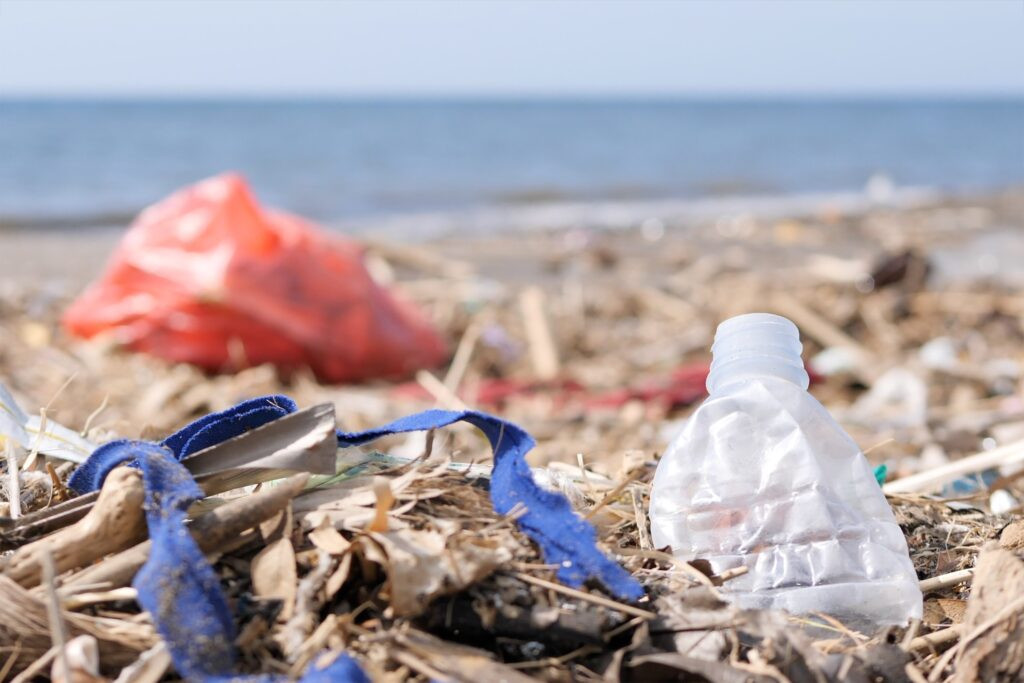Are you planning a trip to Bali and wondering how can tourism be more eco-friendly? SIXT.VN is here to guide you through sustainable travel tips and eco-tourism in Bali. By making conscious choices and supporting local initiatives, you can enjoy the island’s beauty while minimizing your environmental impact. Let’s explore how to make your Bali vacation a green one, with sustainable accommodations, ethical travel practices, and responsible tourism.
1. Understanding Sustainable Tourism in Bali
Sustainable tourism in Bali focuses on minimizing negative impacts and maximizing positive contributions to the environment and local communities. This includes preserving natural resources, supporting local businesses, and respecting cultural heritage.
1.1. What is Sustainable Tourism?
Sustainable tourism aims to balance the needs of tourists, the environment, and local communities. It promotes responsible travel practices that minimize environmental damage, conserve resources, and support the socio-economic well-being of the local population.
1.2. The Importance of Eco-Friendly Tourism in Bali
Bali’s natural beauty and cultural richness are its main attractions. Over-tourism can lead to environmental degradation, resource depletion, and cultural erosion. Eco-friendly tourism is crucial to preserving Bali’s unique charm for future generations.
1.3. Key Principles of Sustainable Travel
- Environmental Conservation: Protecting natural resources and minimizing pollution.
- Cultural Preservation: Respecting and supporting local traditions and heritage.
- Economic Benefits: Ensuring tourism benefits local communities and businesses.
- Responsible Consumption: Making mindful choices about the products and services you use.
2. Choosing Eco-Conscious Accommodations
Selecting eco-friendly accommodations is a significant step toward sustainable tourism. Look for hotels and resorts that prioritize environmental conservation and responsible practices.
2.1. What to Look for in Eco-Friendly Hotels
- Energy Efficiency: Hotels using renewable energy, energy-efficient lighting, and appliances.
- Water Conservation: Implementing water-saving measures, such as low-flow showers and rainwater harvesting.
- Waste Management: Recycling programs, composting, and reducing single-use plastics.
- Sustainable Sourcing: Using locally sourced and organic food, as well as eco-friendly toiletries.
2.2. Recommended Eco-Friendly Hotels in Bali
| Hotel Name | Location | Sustainable Practices |
|---|---|---|
| Bambu Indah | Ubud | Natural swimming pool, organic garden, sustainable building materials, supports local artisans. |
| Fivelements Retreat Bali | Ubud | Eco-friendly construction, holistic wellness programs, organic cuisine, focuses on spiritual healing. |
| The Green Village | Badung | Built entirely from bamboo, promotes sustainable living, offers workshops on eco-conscious practices. |
| Beehouse Dijwa Ubud Bamboo Hotel | Ubud | The hotel prioritizes sustainability by using eco-friendly materials and practices. |
2.3. Booking Tips for Sustainable Stays
- Research: Read reviews and check certifications (e.g., Green Globe, Travelife) to verify a hotel’s sustainability claims.
- Book Directly: Booking directly with the hotel often ensures more transparency about their practices.
- Ask Questions: Inquire about their sustainability initiatives and how they contribute to the local community.
3. Supporting Local Businesses and Communities
Engaging with local businesses and communities enriches your travel experience and supports Bali’s economy and cultural heritage.
3.1. The Importance of Local Engagement
Supporting local businesses helps to sustain the local economy, preserve cultural traditions, and provide authentic experiences for travelers.
3.2. Shopping at Local Markets and Artisan Shops
Visit local markets and artisan shops to purchase handmade crafts, traditional textiles, and local produce. This not only supports local artisans but also reduces your carbon footprint by avoiding mass-produced goods.
3.3. Dining at Local Warungs
Warungs are small, family-owned restaurants that serve traditional Balinese cuisine. Dining at these establishments supports local families and offers a taste of authentic Balinese culture.
3.4. Participating in Community-Based Tourism
Community-based tourism involves travelers participating in activities that directly benefit local communities. This can include village tours, traditional cooking classes, or volunteering with local conservation projects.
4. Reducing Your Environmental Footprint
Minimizing your environmental impact is crucial for sustainable tourism. Simple changes in your travel habits can make a big difference.
4.1. Minimizing Plastic Use
- Bring a Reusable Water Bottle: Refill your bottle at water stations instead of buying bottled water.
- Say No to Plastic Bags: Carry a reusable shopping bag for your purchases.
- Use Reusable Containers: Pack snacks and meals in reusable containers to avoid single-use packaging.
4.2. Conserving Water and Energy
- Take Shorter Showers: Conserve water by limiting your shower time.
- Turn Off Lights and Electronics: Unplug chargers and turn off lights when you leave your hotel room.
- Reuse Towels and Linens: Hang up towels to indicate you’ll reuse them and opt to have linens changed less frequently.
4.3. Choosing Eco-Friendly Transportation
- Walk or Bike: Explore local areas on foot or by bicycle to reduce your carbon emissions.
- Use Public Transportation: Utilize local buses or shuttle services to get around.
- Opt for Hybrid or Electric Vehicles: If renting a car, choose an eco-friendly option.
5. Respecting Balinese Culture and Traditions
Showing respect for Balinese culture and traditions is essential for responsible tourism.
5.1. Dressing Modestly at Sacred Sites
When visiting temples and other sacred sites, dress modestly by covering your shoulders and knees. Sarongs and sashes are often required and can be rented at the entrance.
5.2. Learning Basic Balinese Phrases
Learning a few basic Balinese phrases, such as “Matur Suksma” (thank you) and “Om Swastiastu” (greetings), shows respect and appreciation for the local culture.
5.3. Participating in Cultural Activities Respectfully
If you attend traditional ceremonies or cultural performances, observe respectfully and follow local customs. Ask for permission before taking photos and avoid disruptive behavior.
 Balinese monk on traditional spiritual ceremony showing respect and appreciation for the local culture
Balinese monk on traditional spiritual ceremony showing respect and appreciation for the local culture
6. Supporting Conservation Efforts
Contribute to conservation efforts by visiting protected areas, supporting wildlife sanctuaries, and participating in environmental initiatives.
6.1. Visiting Protected Areas and National Parks
Bali is home to several national parks and protected areas, such as West Bali National Park and Bali Botanic Garden. Visiting these sites supports conservation efforts and provides opportunities to appreciate Bali’s natural beauty.
6.2. Supporting Wildlife Sanctuaries
Visit wildlife sanctuaries that rehabilitate and protect endangered species. Ensure these sanctuaries adhere to ethical practices and prioritize animal welfare.
6.3. Participating in Beach Cleanups and Reforestation Projects
Volunteer in beach cleanups and reforestation projects to help protect Bali’s environment. Many organizations offer opportunities for tourists to participate in these initiatives.
 Plastic waste and trash on sandy beach environmen showing the importance of beach cleanups
Plastic waste and trash on sandy beach environmen showing the importance of beach cleanups
7. Choosing Sustainable Tour Operators
Opt for tour operators that prioritize sustainability and responsible travel practices.
7.1. What to Look for in a Sustainable Tour Operator
- Eco-Friendly Practices: Tour operators that minimize environmental impact through responsible transportation, waste management, and conservation efforts.
- Support for Local Communities: Tour operators that work with local guides, use local accommodations, and support community-based tourism initiatives.
- Ethical Treatment of Animals: Tour operators that avoid activities that exploit or harm animals.
7.2. Recommended Sustainable Tour Operators in Bali
| Tour Operator | Focus | Sustainable Practices |
|---|---|---|
| Bali Eco Tours | Eco-friendly cycling and trekking tours | Supports local villages, promotes conservation, uses sustainable transportation. |
| Green Bali Adventures | Sustainable trekking and cultural tours | Employs local guides, supports community development, minimizes environmental impact. |
| Wayan Eco BalI | Eco-friendly private day tours | Support local communities, cultural tour, and promotes conservation. |
7.3. Booking Tips for Sustainable Tours
- Research: Read reviews and check certifications to verify a tour operator’s sustainability claims.
- Ask Questions: Inquire about their sustainability practices and how they contribute to the local community.
- Choose Small Group Tours: Smaller groups often have a lower environmental impact and provide a more intimate experience.
8. Offsetting Your Carbon Footprint
Consider offsetting your carbon footprint to mitigate the environmental impact of your travel.
8.1. Understanding Carbon Offsetting
Carbon offsetting involves investing in projects that reduce carbon emissions to compensate for your own emissions. This can include renewable energy projects, reforestation initiatives, and energy efficiency programs.
8.2. How to Calculate Your Carbon Footprint
Use online carbon footprint calculators to estimate the emissions associated with your flights, accommodation, and activities.
8.3. Reputable Carbon Offset Programs
- Terrapass: Invests in renewable energy and methane capture projects.
- Gold Standard: Certifies high-quality carbon offset projects that meet strict environmental and social standards.
- Cool Effect: Supports projects that reduce carbon emissions and benefit local communities.
9. Responsible Wildlife Interactions
Ensure that your interactions with wildlife are ethical and do not contribute to animal exploitation.
9.1. Avoiding Animal Tourism Activities
Avoid activities that exploit or harm animals, such as elephant riding, dolphin shows, and tiger selfies. These activities often involve cruelty and contribute to the illegal wildlife trade.
9.2. Visiting Ethical Wildlife Sanctuaries
Visit wildlife sanctuaries that prioritize animal welfare and conservation. Ensure these sanctuaries adhere to ethical practices and do not exploit animals for profit.
9.3. Observing Wildlife in Their Natural Habitat
Opt for wildlife tours that allow you to observe animals in their natural habitat without disturbing them. Choose tour operators that follow responsible wildlife viewing guidelines.
10. Sustainable Souvenir Shopping
Choose souvenirs that are locally made, eco-friendly, and support local artisans.
10.1. Supporting Local Artisans and Crafts
Purchase handmade crafts, traditional textiles, and local artwork directly from artisans to support their livelihoods and preserve cultural traditions.
10.2. Choosing Eco-Friendly Materials
Opt for souvenirs made from sustainable materials, such as bamboo, wood, and recycled materials. Avoid products made from endangered species or unsustainable resources.
10.3. Avoiding Mass-Produced Souvenirs
Avoid purchasing mass-produced souvenirs that are often imported and do not benefit the local economy. Choose unique, locally made items that reflect Balinese culture and craftsmanship.
 Young woman traveler at ubud market in bali supporting local artisans and craftsmen
Young woman traveler at ubud market in bali supporting local artisans and craftsmen
11. Spreading Awareness and Inspiring Others
Share your experiences and inspire others to travel sustainably in Bali.
11.1. Sharing Your Sustainable Travel Experiences
Share your sustainable travel experiences on social media, blogs, and travel forums. Use hashtags like #SustainableBali, #EcoTourism, and #ResponsibleTravel to reach a wider audience.
11.2. Encouraging Friends and Family to Travel Sustainably
Encourage your friends and family to adopt sustainable travel practices when they visit Bali. Share tips and recommendations for eco-friendly accommodations, activities, and tour operators.
11.3. Supporting Sustainable Tourism Initiatives
Support sustainable tourism initiatives by donating to local conservation organizations, participating in volunteer projects, and advocating for responsible travel policies.
12. Ethical and Responsible Travel
Responsible travel involves making ethical choices that respect local culture, traditions, and the environment.
12.1. Understanding Ethical Considerations
Ethical travel involves considering the impact of your actions on local communities, the environment, and cultural heritage. It includes respecting local customs, avoiding exploitation, and promoting responsible consumption.
12.2. Respecting Local Customs and Traditions
Show respect for local customs and traditions by dressing modestly, learning basic Balinese phrases, and observing cultural practices respectfully.
12.3. Avoiding Exploitation and Supporting Fair Trade
Avoid activities that exploit people, animals, or the environment. Support fair trade initiatives that ensure producers receive fair wages and work in safe conditions.
13. Government and NGO Initiatives
Learn about the initiatives undertaken by the Balinese government and non-governmental organizations (NGOs) to promote sustainable tourism.
13.1. Government Policies and Regulations
The Balinese government has implemented policies and regulations to promote sustainable tourism, such as waste management programs, conservation initiatives, and eco-tourism certifications.
13.2. NGO Efforts and Projects
NGOs play a crucial role in promoting sustainable tourism in Bali through conservation projects, community development initiatives, and environmental education programs.
13.3. Supporting Local Initiatives
Support local initiatives by volunteering with NGOs, donating to conservation projects, and participating in community-based tourism programs.
14. Sustainable Tourism Beyond South Bali
Explore destinations beyond South Bali to distribute tourism revenue and reduce pressure on popular areas.
14.1. Exploring Less Visited Regions
Discover the beauty of regions like Sidemen, Munduk, and North Bali, which offer stunning landscapes, cultural attractions, and opportunities for sustainable tourism.
14.2. Promoting Regional Development
By exploring less visited regions, you can contribute to regional development and support local communities that rely on tourism for their livelihoods.
14.3. Discovering Hidden Gems
Uncover hidden gems and unique experiences by venturing off the beaten path and exploring the diverse landscapes and cultures of Bali.
 Agriculture woman carrying tools on rice terraces in Ubud Village exploring less visited regions
Agriculture woman carrying tools on rice terraces in Ubud Village exploring less visited regions
15. Sustainable Activities in Bali
Engage in activities that are environmentally friendly and support local communities.
15.1. Eco-Friendly Hiking and Trekking
Explore Bali’s natural beauty through eco-friendly hiking and trekking tours that minimize environmental impact and support local guides.
15.2. Sustainable Water Sports
Participate in sustainable water sports, such as snorkeling, diving, and kayaking, that protect marine ecosystems and support local conservation efforts.
15.3. Cultural Immersion Experiences
Immerse yourself in Balinese culture through traditional cooking classes, dance performances, and artisan workshops that support local communities and preserve cultural traditions.
16. Tips for Sustainable Air Travel to Bali
Minimize the environmental impact of your flights to Bali.
16.1. Choosing Direct Flights
Opt for direct flights to reduce fuel consumption and carbon emissions.
16.2. Packing Light
Pack light to reduce the weight of your luggage and decrease fuel consumption.
16.3. Offsetting Your Carbon Emissions
Offset your carbon emissions by investing in reputable carbon offset programs that support renewable energy and conservation projects.
17. The Role of Technology in Sustainable Tourism
Utilize technology to enhance your sustainable travel experience.
17.1. Using Eco-Friendly Travel Apps
Use eco-friendly travel apps to find sustainable accommodations, activities, and restaurants.
17.2. Digital Guides and Maps
Utilize digital guides and maps to reduce paper consumption and minimize your environmental footprint.
17.3. Online Resources for Sustainable Travel
Access online resources for sustainable travel tips, recommendations, and information on local conservation efforts.
18. Sustainable Transportation Options in Bali
Choose transportation options that minimize environmental impact.
18.1. Walking and Cycling
Explore local areas on foot or by bicycle to reduce your carbon emissions and immerse yourself in the local culture.
18.2. Public Transportation
Utilize local buses and shuttle services to get around and reduce your reliance on private vehicles.
18.3. Electric and Hybrid Vehicles
If renting a car, choose an electric or hybrid vehicle to minimize your environmental footprint.
19. Addressing the Challenges of Tourism in Bali
Understand the challenges posed by tourism in Bali and work towards sustainable solutions.
19.1. Over-Tourism and Congestion
Address over-tourism and congestion by exploring less visited regions and supporting initiatives that promote sustainable tourism management.
19.2. Waste Management Issues
Contribute to waste management solutions by reducing your plastic consumption, participating in beach cleanups, and supporting recycling initiatives.
19.3. Water Scarcity
Conserve water by taking shorter showers, reusing towels, and supporting water conservation programs.
20. The Future of Sustainable Tourism in Bali
Explore the future of sustainable tourism in Bali and the opportunities for responsible travel.
20.1. Innovation and Technology
Embrace innovation and technology to develop sustainable tourism solutions that minimize environmental impact and support local communities.
20.2. Community Engagement
Promote community engagement by supporting local businesses, participating in community-based tourism initiatives, and respecting local customs and traditions.
20.3. Education and Awareness
Foster education and awareness about sustainable tourism practices to encourage responsible travel and protect Bali’s natural and cultural heritage.
SIXT.VN is committed to helping you plan a sustainable and memorable trip to Bali. Contact us today to learn more about our eco-friendly travel options and personalized itineraries. Let’s make a positive impact together! Address: 260 Cau Giay, Hanoi, Vietnam. Hotline/Whatsapp: +84 986 244 358. Website: SIXT.VN.
FAQ: How Can Tourism Be More Eco Friendly in Bali?
1. What does sustainable tourism mean in Bali?
Sustainable tourism in Bali means balancing the needs of tourists with the preservation of the environment and the well-being of local communities. It involves minimizing negative impacts and maximizing positive contributions to ensure Bali’s beauty and culture thrive for future generations.
2. How can I find eco-friendly accommodations in Bali?
Look for hotels with certifications like Green Globe or Travelife, prioritize energy and water conservation, manage waste responsibly, and use sustainable sourcing. Check online reviews or visit SIXT.VN for curated eco-friendly options.
3. What are some ways to reduce plastic usage while traveling in Bali?
Bring a reusable water bottle, say no to plastic bags, use reusable containers for snacks, and opt for products with minimal packaging. Support businesses that offer refill options.
4. How can I support local communities during my Bali trip?
Shop at local markets, dine at family-owned warungs, participate in community-based tourism activities, and choose accommodations that support local artisans and businesses.
5. What are some ethical considerations for traveling to Bali?
Dress modestly at sacred sites, learn basic Balinese phrases, avoid activities that exploit animals, and respect local customs and traditions. Support fair trade initiatives.
6. What activities can I do in Bali that are environmentally friendly?
Engage in eco-friendly hiking, snorkeling, diving, kayaking, and cultural immersion experiences like traditional cooking classes and artisan workshops.
7. How can I offset my carbon footprint when traveling to Bali?
Calculate your carbon footprint using online tools and invest in reputable carbon offset programs like Terrapass or Gold Standard, which support renewable energy and conservation projects.
8. What is the Balinese government doing to promote sustainable tourism?
The government implements policies and regulations such as waste management programs, conservation initiatives, and eco-tourism certifications to promote sustainability.
9. Are there regions in Bali that are less crowded and more sustainable to visit?
Yes, explore regions like Sidemen, Munduk, and North Bali. These areas offer stunning landscapes, cultural attractions, and opportunities for sustainable tourism while distributing tourism revenue more evenly.
10. How can SIXT.VN help me plan a sustainable trip to Bali?
SIXT.VN offers personalized itineraries with eco-friendly accommodations, sustainable activities, and transportation options. We prioritize responsible travel and support local communities. Contact us for a tailored sustainable travel experience.



